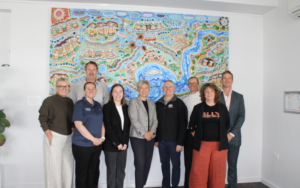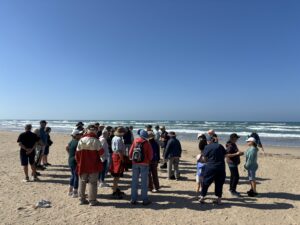After a successful 2019, The Goyder Institute for Water Research released its annual research and development plan for 2020. The R&D plan outlines the activities for the year ahead, including research across its three impact areas: Economic Impact, Healthy Ecosystems, and Climate Action.
Eight projects will be finalised this year and the Institute will focus on disseminating research findings and facilitating the adoption of the knowledge into decision-making for all of the second-term (2015-2020) projects. This will done through a wide range of activities, including training workshops, technical reports, fact sheets, industry and subject matter expert briefings, webinars, public release of data, and newsletter articles.
The Institute is in the last year of its second term, with all Institute Partners currently working towards establishing a third term for 2020–23. Several collaborative opportunities are being pursued for the third term, including:
- a research program to support the restoration of wetlands of the Murray-Darling Basin
- The ONE Basin Cooperative Research Centre, a Murray-Darling Basin Research Consortium
- a research project on urban water management practices for the protection of coastal waters
- a research project supporting climate adaption within South Australia
- research projects with international partners that have been identified as part of International Trade Mission’s with the State Government.
A critical component of these opportunities will be the ongoing collaboration between all of the Institute Partners: The South Australian Government through the Department for Environment and Water, CSIRO, Flinders University,The University of Adelaide, University of South Australia, and the International Centre of Excellence in Water Resources Management as well as its associates SA Water, the South Australian Research and Development Institute, and the National Centre for Groundwater Research and Training.
You can find out more about the Institute’s direction in the R&D plan or contact Institute Director Dr Kane Aldridge to discuss opportunities for collaboration and interdisciplinary research.


